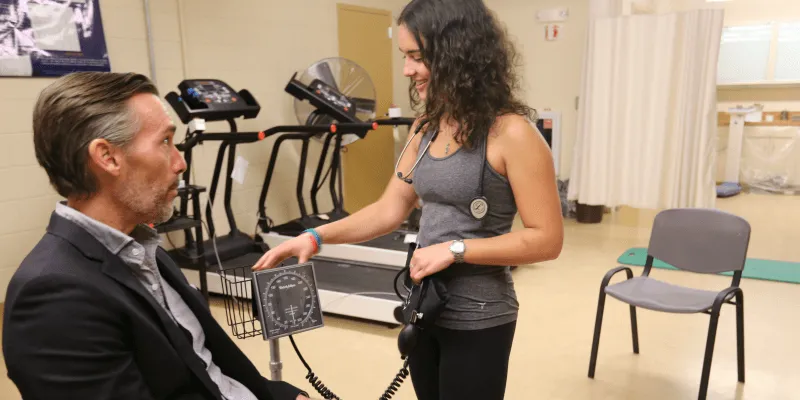A new master of science in Physical Activity and Wellness (PAWS) launching this fall will prepare health professionals to implement evidence-based programs in communities, schools, senior residences, institutions and corporate work sites. Graduates of this one-year master’s program will understand the science underlying the relationship between physical inactivity and chronic disease and its impact on population health.
The PAWS degree addresses the growing need for graduate-trained experts skilled in the design of lifestyle physical activity programs to improve human health. The degree may complement careers in a variety of fields, and a background in exercise science or health care is not required to enroll, said Rehabilitation and Movement Science Professor Connie Tompkins, Director for the Physical Activity and Wellness Graduate Program.
“I’ve been in contact with individuals who have undergraduate degrees in Nutrition, Environmental Studies and Music Business Management. Professionals seeking to implement wellness programs in their community or use the information learned in the program to complement their current line of work would benefit from a PAWS M.S.,” Tompkins said.
To accommodate working professionals, the majority of the courses will be offered in late afternoons, evenings and in an online format.
Graduates of the PAWS program are immediately eligible for employment in a wide variety of health care and public health settings and prepared for doctoral and professional programs in public health.
“There has been steady progress towards new and more positions available for skilled physical activity and wellness practitioners, particularly geared to the prevention aspect of physical activity for overall health and wellness rather than the treatment end,” Tompkins said.
Physical activity programming is considered a standard of care for prevention of chronic disease epidemics including obesity, type 2 diabetes, hypertension, cancer and mental health concerns. Courses in PAWS will expose students to evidence-based, theoretical models to guide the planning, evaluation, and implementation of physical activity interventions, health promotion and wellness programs at population levels.
